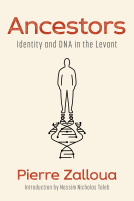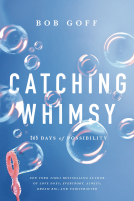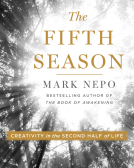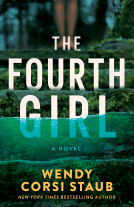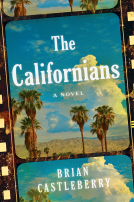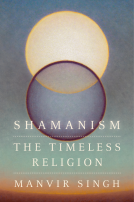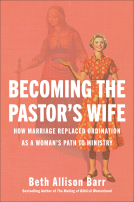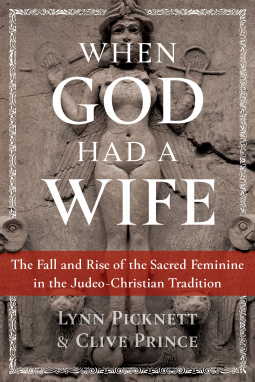
When God Had a Wife
The Fall and Rise of the Sacred Feminine in the Judeo-Christian Tradition
by Lynn Picknett; Clive Prince
This title was previously available on NetGalley and is now archived.
Send NetGalley books directly to your Kindle or Kindle app
1
To read on a Kindle or Kindle app, please add kindle@netgalley.com as an approved email address to receive files in your Amazon account. Click here for step-by-step instructions.
2
Also find your Kindle email address within your Amazon account, and enter it here.
Pub Date Dec 10 2019 | Archive Date Oct 11 2019
Inner Traditions | Bear & Company
Talking about this book? Use #WhenGodHadAwife #NetGalley. More hashtag tips!
Description
• Provides historical and archaeological evidence for an earlier form of Hebrew worship with both male and female gods, including a 20th-century discovery of a Hebrew temple dedicated to both Yahweh and the warrior goddess Anat
• Explores the Hebrew pantheon of goddesses, including Yahweh’s wife, Asherah, goddess of fertility and childbirth
• Shows how both Jesus and his great rival Simon Magus were attempting to restore the ancient, goddess-worshipping religion of the Israelites
Despite what Jews and Christians--and indeed most people--believe, the ancient Israelites venerated several deities besides the Old Testament god Yahweh, including the goddess Asherah, Yahweh’s wife, who was worshipped openly in the Jerusalem Temple. After the reforms of King Josiah and Prophet Jeremiah, the religion recognized Yahweh alone, and history was rewritten to make it appear that it had always been that way. The worship of Asherah and other goddesses was now heresy, and so the status of women was downgraded and they were blamed for God’s wrath.
However, as Lynn Picknett and Clive Prince reveal, the spiritual legacy of the Jewish goddesses and the Sacred Feminine lives on. Drawing on historical research, they examine how goddess worship thrived in early Judaism and included a pantheon of goddesses. They share new evidence for an earlier form of Hebrew worship that prayed to both male and female gods, including a 20th-century archaeological discovery of a Hebrew temple dedicated to both Yahweh and the goddess Anat. Uncovering the Sacred Feminine in early Christianity, the authors show how, in the first century AD, both Jesus and his great rival, Simon Magus, were attempting to restore the goddess-worshipping religion of the Israelites. The authors reveal how both men accorded great honor to the women they adored and who traveled with them as priestesses, Jesus’s Mary Magdalene and Simon’s Helen. But, as had happened centuries before, the Church rewrote history to erase the feminine side of the faith, deliberately ignoring Jesus’s real message and again condemning women to marginalization and worse.
Providing all the necessary evidence to restore the goddess to both Judaism and Christianity, Picknett and Prince expose the disastrous consequences of the suppression of the feminine from these two great religions and reveal how we have been collectively and instinctively craving the return of the Sacred Feminine for millennia.
Advance Praise
“What I like about this book is the referencing to external scholarship, and clarity of presentation. The finding of a 9th century BCE inscription at Kuntillet Ajrud, read as ‘Yahwe (God) and his Ashera,’ supports the authors’ contention that God had a consort.” Robert Feather, author of The Secret Initiation of Jesus at Qumran
“[Picknett and Prince] provide credible explanations for incredible topics.” Ian Punnett, Coast to Coast AM
“Lynn Picknett and Clive Prince… specialize in topics that challenge established and cultural history.” Fortean Times Magazine
Available Editions
| EDITION | Other Format |
| ISBN | 9781591433705 |
| PRICE | $18.00 (USD) |
| PAGES | 336 |
Featured Reviews
A fascinating, scholarly book about the divine feminine in Judaism and Christianity. The authors show that - despite our assumption that monotheism has existed since the time of Abraham (at least) - there has always been a "goddess" figure who was worshipped in Judaism. This "goddess" figure was also a part of early Christian sects as well.
Anyone who is interested in a scholarly approach to the Bible should read this book. Much of the book is focused on the Old Testament and addresses many highly interesting topics related to the ancient Hebrews, who they were, and how they viewed God. The authors cover the feminine divine of the New Testament as a continuation of the goddess figures of the Old Testament, focusing on Mary Magdalene. Surprisingly, Mary of Nazareth (the mother of Jesus) was only addressed at the very end of the book. Given the veneration of her by the Roman Catholic Church, I would have expected much more discussion of her.
This book would best interest those with seminary degrees or laypersons with a very keen interest in Biblical scholarship. Much of the research by the authors is rather mind-blowing and might be a bit much for the average churchgoer.
 Lisa D, Educator
Lisa D, Educator
This book provides an accessible resource for those seeking information about the sacred feminine. For millennia, humans worshipped both female and male deities. This was especially true for agriculturally-based civilizations, as their deities represented the reproductive process of crops, animals, and humans. The authors have done good research and skillfully lift-up the many female deities that have sustained humanity throughout the ages. For those who want to further study this important piece of the history of religions, the books will not disappoint.
I found it incredibly interesting in how these religions were formed in the beginning - it's something I've always been interested in, how Judaism, Christianity and Islam all kind of circle around the same geographical area, principles and all include Jesus, which just makes the endless war and hatred of each other throughout history completely ridiculous to me. I am someone who is not religious in any way shape or form, but I respect other people's religions, as long as their beliefs don't belittle or diminish someone else's beliefs.
I did find it a little hard to follow at some points, simply because I am not brushed up on the Bible, but it didn't hinder my reading completely.
This was intricately detailed in it's research and the depth of work that the authors did for this was astounding. there were detailed recounts of Bible stories, and was very interesting to read. Obviously this is a book only 'suitable' for those who are interested in the subject itself and I do wish it had more of a feminist undertone but that's just my preference.
 Librarian 431790
Librarian 431790
An interesting and engrossing book about the sacred feminine. It's well researched and well written.
I learned a lot and I think I'd like to read other books by this author.
Recommended!!
Many thanks to the publisher and Netgalley for this ARC, all opinions are mine.
When God Had a Wide is a in depth book that is well researched and fascinating. It is well written and very interesting. If you are interested in religious studies than this is a good book for you.
I'm gonna jump right in and say that When God Had a Wife: The Fall and Rise of the Sacred Feminine in the Judeo-Christian Tradition has been one of the most fascinating books I've ever read. I randomly requested it on NetGalley because I liked the title and I wanted to read a nonfiction. I'm obviously very glad I did because I highly enjoyed this book and I consider it a 2019 favorite of mine now.
I am a history lover and I've always been intrigued by anything biblical ever since I was a child but I wouldn't say this book is something I'd pick up easily. I just don't read a lot of books that deal with religion or spirituality even though I do find these interesting topics. So now I feel I definitely need to read more books that are similar to this one, or at least look into the authors' other books. I'm sure they will be equally intriguing.
A big chunk of this book, which was mostly the first part, dived into the early days of Judaism and where Asherah (Yahweh's wife) fit in it. This part was the most fascinating to me. I could hardly stop reading this particular section of the book. It was not only something interesting to read about but also very thought-provoking.
Another thing I feel I just gotta mention is that this was a very well-researched book and that the authors definitely know what they're talking about. This is another reason why I can't wait to read more books written by them, actually. I know this book will probably not be everyone's cup of tea. I must admit that even for me all the information of the Sacred Feminine and everything it entails made my head spin but it was well worth the read. I'm so glad I stumbled upon it!
 Willy M, Reviewer
Willy M, Reviewer
This book is well researched. "When God Had a Wife" is a great discussion on the what is the female nature of God as we see it in the Bible. Is it worth the read? Yes. Does it answer all questions? No. And that is what makes the book. you will be enriched by the discussion and be filled with questions and speculations of your own.
 Educator 317339
Educator 317339
This was really interesting; I'd never learned about any of this before. I will be discussing with friends when we discuss history and religion....
My thanks to Inner Traditions/Bear & Company for an eARC via NetGalley of ‘When God Had A Wife’ by Lynn Picknett and Clive Prince in exchange for an honest review.
Subtitled ‘The Fall and Rise of the Sacred Feminine in the Judeo-Christian Tradition’ this book is the culmination of decades of research by its authors and also revisits key themes from their previously published works.
While approaching the topic in a scholarly manner they write: “Part of our mission is to build a bridge between the “Mind, Body, and Spirit” (MBS) community and academics. We realize the time is right to share the curious, not always easy, crossover between their discoveries and ours.”
Certainly a fascinating, eye opening work that looks at an extensive array of both historical and archeological sources and presents them in an accessible manner. The main text is accompanied by notes and a detailed bibliography.
I come from the position of someone who is already convinced of the importance and existence of the Divine Feminine and so in my case Picknett and Prince are ‘preaching to the choir’.
However, I also recognise that no matter how strong the archeological and historical evidence is there will be those who will deny anything but a strictly patriarchal interpretation of Judeo-Christianity.
Yet I am heartened by the authors optimistic view and certainly over my lifetime have witnessed a cultural shift in terms of the recognition of the Sacred Feminine.
I found their closing words especially inspiring: “The story we have traced shows a perpetual yin-yang-like balance to be cosmically important. And what the world needs now more than anything is balance. But as ever, hidden in the story of the goddess is the secret of how to make it happen.”
I feel that this is an important work that hopefully will encourage study and dialogue. Certainly one that I would hope will be welcomed by academia and by those interested in Biblical studies as well as by those exploring aspects of the Sacred Feminine in world religions.
An intriguing look at the sidelining of the Sacred Feminine within Judaism and Christianity. The authors go back to the time of the Israelites and argue that not only were they polytheistic (or at the very least they acknowledged other gods even if one was considered foremost) until the time of Isaiah, but that even Yahweh had a female counterpart. Working through the centuries down to the time of Jesus, the book argues that despite the best efforts of the monotheists, the figure of the Sacred Feminine refused to disappear completely.
It was a very good read with some convincing arguments, although I must say that I didn't agree with everything. The authors have obviously done a great deal of research and it shows, however, I did feel that some of the middle chapters seemed to be very long and rather dry in areas. Overall, I found it to be worth reading and it has piqued my interest in looking into the subject further.
Thanks to NetGalley and publishers, Inner Traditions / Bear & Company, for the opportunity to read an ARC.
Readers who liked this book also liked:
Michelle Dominguez Greene
General Fiction (Adult), Mystery & Thrillers, True Crime
Silvia Moreno-Garcia
Historical Fiction, Literary Fiction, Sci Fi & Fantasy


